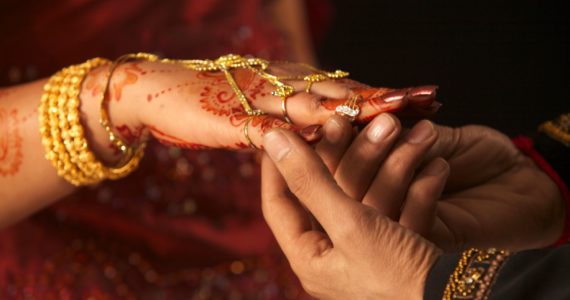Source: http://peopleof.oureverydaylife.com/rules-obligations-muslim-marriage-6160.html
Many traditions related to Muslim weddings vary by culture. Muslims come from places as diverse as Pakistan, Turkey, Somalia and Europe, and the wedding customs for each of these groups are similarly varied. However, while the wedding celebrations might be quite different, Islam has some teachings about the rules and obligations within marriages that are upheld by Muslims regardless of their nationalities or ethnicities.
Legal Contract
Many Muslims consider the religious ceremony, and not the legal registration, to be the actual wedding. Although Islam teaches that the requirements of the religious ceremony and the law of the land should both be met when a couple marries, many Muslims do not pay strong attention to the legal aspect. In some places, including the UK, that means that many Muslim partners are not legally recognized as married, although they may be given rights as common law partners.
Arranged Marriage
Although it is not required by Islam, many Muslim marriages are arranged by the couple’s parents. Unmarried Muslims are discouraged to spend much time with members of the other sex, and dating is frowned on. At the same time, Islam requires that if both the man and the woman do not agree to the pairing, the wedding cannot be held. Because divorce is strongly discouraged, Muslims are urged not to agree to a marriage until they are mature enough to understand the commitment they are making.
Interfaith Marriage
Although interfaith marriages are not always forbidden within Islam, they are discouraged. However, Muslim men are allowed to marry Jewish or Christian women because members of these faiths are considered People of the Book who share many of Islam’s central beliefs. Typically, Muslim women are forbidden to marry non-Muslim men. While Muslims cite many reasons for this difference, a common explanation is that while Islam guarantees freedom of belief to a Muslim’s Jewish or Christian wife, other religions might not permit a Muslim wife to practice her faith.
Expectations
The Muslim view of marriage focuses more on the institution as a social contract, rather than a romantic partnership. Therefore, Muslims should choose a spouse based on moral character and religious devotion, rather than good looks or prestige. People entering a first marriage are expected to be virgins, but celibacy within marriage is discouraged. All married Muslims should do their best to satisfy their partners in the relationship. Polygamy is allowed, but only if the husband treats each of his wives with love and fairness.
Image source: http://www.iwebstreet.com/cute-and-romantic-muslim-couples/








